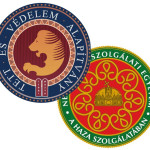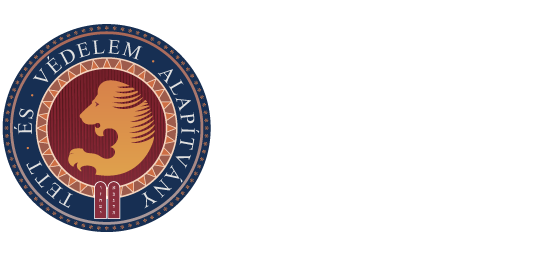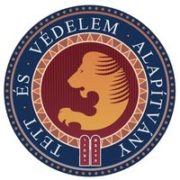(eng) Special course launched at the National University of Public Service
 Budapest, 27 March 2014 – “Since students at our University are very likely to encounter hate crimes in their future careers, a course introducing the background prejudice is greatly needed here. It is important that they learn how to recognize, and how to deal with prejudice.”—Andrea Kozáry, professor of sociology at the Faculty of Law Enforcement of the National University of Public Service said.
Budapest, 27 March 2014 – “Since students at our University are very likely to encounter hate crimes in their future careers, a course introducing the background prejudice is greatly needed here. It is important that they learn how to recognize, and how to deal with prejudice.”—Andrea Kozáry, professor of sociology at the Faculty of Law Enforcement of the National University of Public Service said.
The course, “Background and social consequences of hate-crimes,” was introduced in the spring semester of 2014 at the faculty of Law Enforcement of the National University of Public Service, and was organized by the Szent György Special Student Committee. The lecture series and the seminar program are based on the material developed by Action and Protection Foundation, and the Foundation’s experts in education contribute actively to the course. The course was offered to students from all three faculties of the University; Law Enforcement, Public Administration, and Military Sciences. At the moment 12 first and second year students have enrolled in the elective course for which the material was prepared by Ildikó Barna, sociologist, head of the Department for Social Research Methodology at ELTE University Faculty of Social Sciences, Kristóf Bodó, who are also in charge of holding the course.
Aiming to involve the people effected in the course
The scope of the course, as described by the syllabus, is to “raise awareness among students about the social-psychological and sociological background to prejudice, and about the hate-crimes caused because of these attitudes, in an interactive way through the inclusion of the people and communities in question.” The activities’ main goal is not to increase lexical knowledge, but to make students understand and feel where these crimes come from and what their consequences are. The course is held in six sessions of three hours each.
In the introductory lecture, factors stimulating prejudice and motives behind hate-crimes will be addressed, and the groups most affected by prejudice will be discussed. In the second lecture students will meet individuals from the Jewish and Roma community who have personally been victims of hate-speech, or incitement against their communities. They will try to determine, in an interactive way, together with the students, where the thin line between hate-speech and freedom of speech should be drawn, and what is the difference between hate speech and incitement against communities.
At some point during the course, students will have the opportunity to meet a holocaust survivor, and a victim of the communist era. The legal background of hate crimes shall naturally also be studied, and as in the case of prejudice, the focus will be on doing it together, in an interactive way. Symbols used to incite hate and their negative effects will also be a topic. The following questions will also be debated: What are the means at the disposal of society at large to decrease prejudice? What is the difference between hate crime and other crimes? Why is the prevention of hate crimes especially important?
At the last session students will visit the synagogue in Óbuda (Budapest, 3rd District), and put their questions to Slomó Köves, Executive Rabbi of the Unified Hungarian Jewish Congregation.
Positive Feedback
As we were informed by Andrea Kozáry earlier, there has been a precedent of a similar course at the Faculty of Law Enforcement in the last academic year. Sponsored by a an EU project, the ComPHEE (Commonality in Police Higher Education in Europe), it was a two-week course entitled “Hate crimes”, an intensive pilot seminar in English attended by participating students from the Netherlands, Hungary and Germany. “We received very positive feedback from the participants”—Andrea Kozáry, director of the project, added.
The university is planning to offer this seminar as an elective course in their BA programs, and extend the number of hours the course will take from the next academic year.


